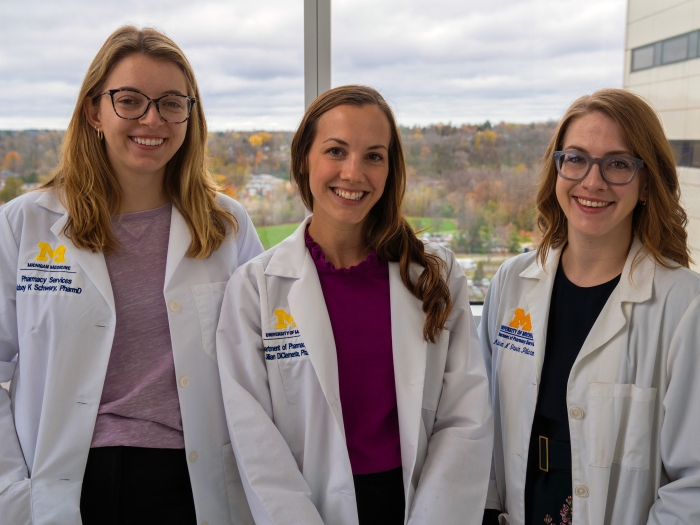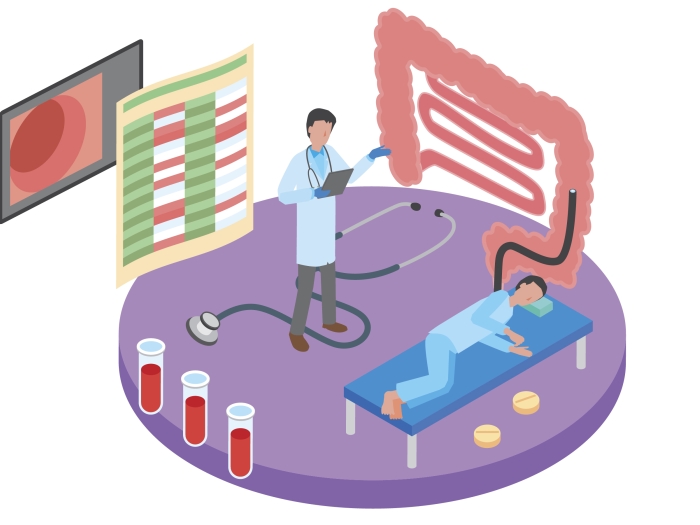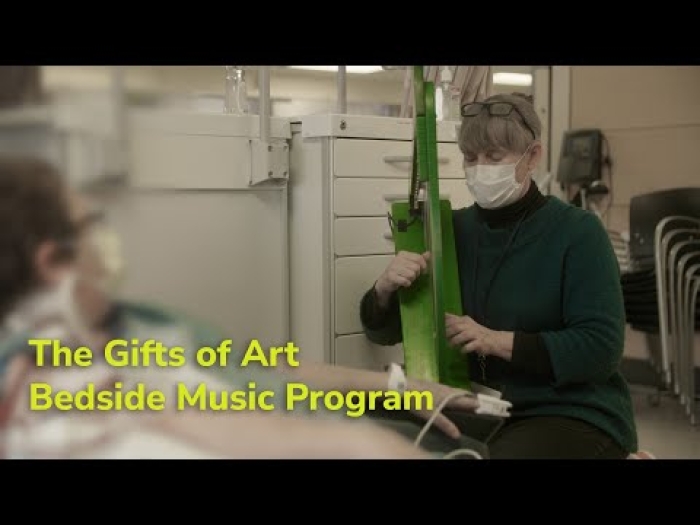As the nation’s premier health policy training program for clinicians shuts down, new programs have risen to take its place.
7:00 AM
Author |

Health care research is on center stage in today's age of Big Data, thanks to increasing out-of-pocket and societal health care costs and major changes in how the nation delivers, pays for and improves care.
MORE FROM THE LAB: Subscribe to our weekly newsletter
"As our nation faces the reality that we can't keep spending more and more of our gross domestic product on health care, we need scholars at that table, thoughtful people to make sure we don't cut out a lot of flesh as we're trying to get rid of flab," says Rodney Hayward, M.D., a professor of internal medicine at Michigan Medicine and a Veterans Affairs researcher.
Creating those scholars, who can span the clinical world of health care and the wonky world of policy and economics, has taken on new urgency. That's why Hayward and others lead programs that prepare early-career clinicians to transform health care and policy through high-quality research.
Some of the longest-running, and some of the newest, programs are based at the University of Michigan Institute for Healthcare Policy & Innovation (IHPI), Yale University, the University of Pennsylvania and the University of California, Los Angeles.
Today more than ever, Hayward says, "we need clinicians — physicians, nurses and pharmacists — who have the skills and insights needed to make important differences by providing new scholarship on problems the nation faces."
As our nation faces the reality that we can't keep spending more and more of our gross domestic product on health care, we need scholars at that table, thoughtful people to make sure we don't cut out a lot of flesh as we're trying to get rid of flab.Rodney Hayward, M.D.
A decades-old tradition
Each year, a handpicked group of early-career clinicians comes to U-M and the three other sites to learn how to design and carry out data-driven studies that can help America wring the most value out of health care dollars, make health policy changes based on solid evidence, and identify and close gaps in safety, equality and access to care.
Hayward himself is a product of the programs' bedrock, a highly regarded 45-year-old program called the Robert Wood Johnson Foundation Clinical Scholars Program. Forty other U-M Medical School faculty members, and a large number of academic researchers and government agency experts across the country, have also completed the program.
Michigan has been a training site for the RWJF program for 22 years and has trained 126 clinicians in statistical methods, study design principles, policy concepts, economics, leadership and more.
They receive the time and mentoring they need to carry out a two-year research effort and produce evidence that can be put to immediate use.
Their projects run the gamut of health care, from heart attack care optimization to disaster response planning to health disparities in adolescents.
"To my mind, this has been the single-most-efficient research training program for producing health care scholars that there has ever been, producing outstanding academics and scholars who go directly into public and private sector service," Hayward says.
The teenager and the toddler
Thirteen years ago, U-M added a program to supplement the original clinical scholars program: a way for other young clinicians to study alongside the RWJF clinical scholars and earn the same master's degree in health and health care research.
SEE ALSO: Jimmy Kimmel Sheds Light on How Health Policy Affects Children with CHD
That program, which many clinical departments have used to help recruit promising young faculty, has graduated 161 students at U-M.
In 2015, the Robert Wood Johnson Foundation announced it was heading in a new direction and would sunset the clinical scholars program's funding. The scholars accepted that year, who finished their training this month, would be the program's last.
But Hayward and his colleagues at U-M and the other three institutions knew the concept was too good to let die.
That led to the birth of the National Clinician Scholars Program (NCSP).
NCSP is available to doctoral-level nurses (and in U-M's case, pharmacists) as well as physicians, who were the only clinicians eligible for the RWJF-funded program. In addition to the multidisciplinary focus, NCSP also allows scholars to choose a global, rather than U.S., focus for their research.
The first crop of NCSP participants just finished its first year, and the next group will start in July. Dozens of applicants vied for each spot. More are expected to apply in the new round, which opened in June and ends Aug. 1.
For now, the University of Michigan and its three NCSP peers have stepped forward with funding to support the program. Local Veterans Affairs research centers also support some positions, for a total of five to seven NCSP scholars at each school.
IHPI administers the new program at U-M, giving the scholars and master's students access to the 510 U-M faculty from 17 schools and colleges that belong to the institute.
Just as with the RWJF program, the NCSP scholars receive their training for free and are paid a stipend, which frees them to pursue the research they feel can have the most impact. Junior faculty enrolled in the U-M master's program are called IHPI Clinician Scholars and usually have their tuition paid by the department they work for.
"We do face a continuing challenge to support the program over the long term, but it has been wonderful to see how our faculty have stepped up, volunteering large amounts of time to mentor the trainees," says Hayward. "The work is so important, and it's so wonderful to work with such bright, caring, energetic people who are new to policy and to research, and train them to bring their critical minds in a nonpartisan way to the problems of health care."

Explore a variety of healthcare news & stories by visiting the Health Lab home page for more articles.

Department of Communication at Michigan Medicine
Want top health & research news weekly? Sign up for Health Lab’s newsletters today!





